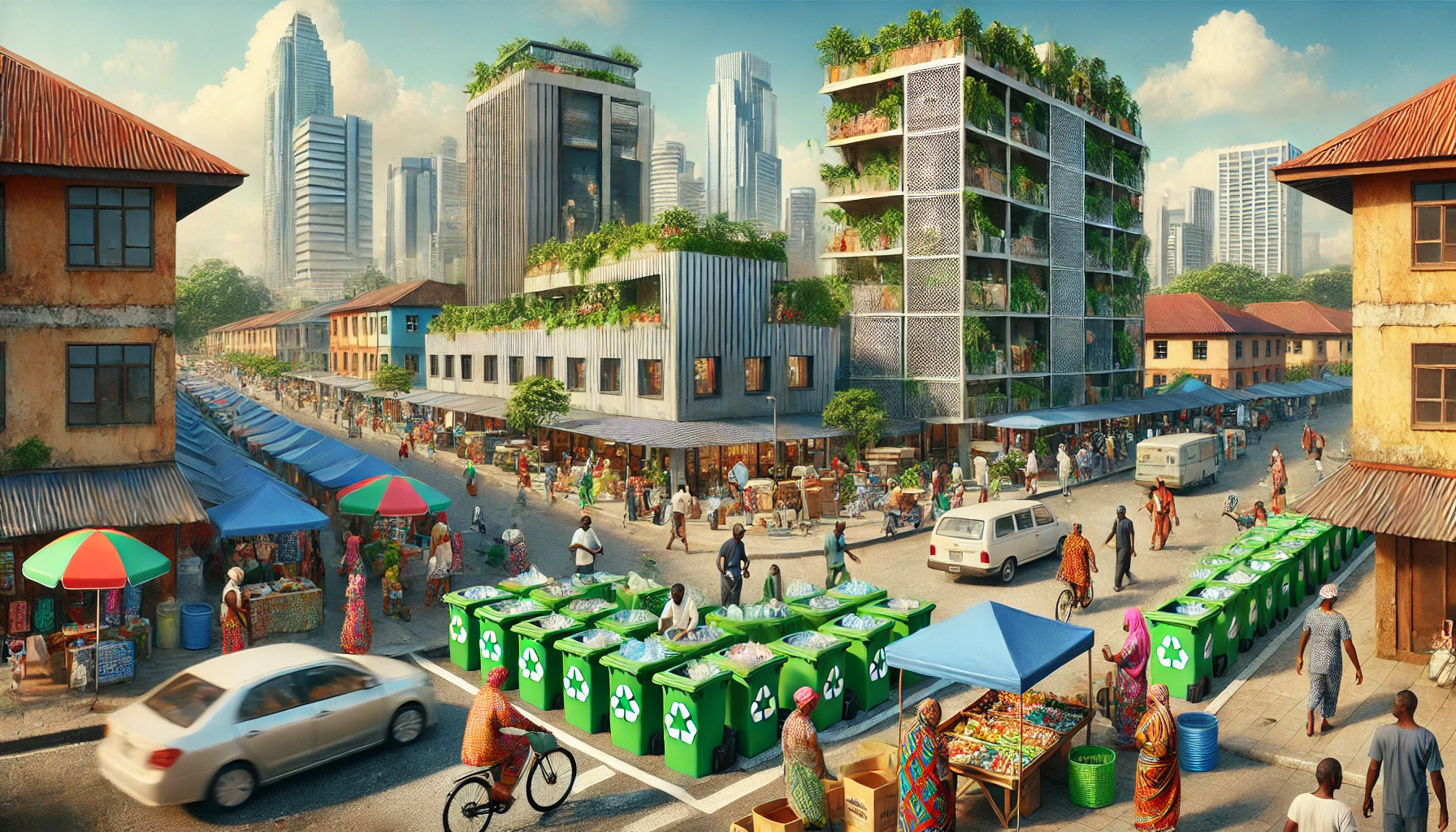Overcoming Waste Challenges in Lagos: A Path to Sustainable Household Management
A World Bank study highlights Lagos' critical waste management challenges, driven by inadequate infrastructure and behavioral barriers, particularly among low-income communities. It recommends behaviorally informed solutions like awareness campaigns, choice architecture, and community engagement to promote sustainable waste practices.

A World Bank study, conducted by the Mind, Behavior, and Development Unit (eMBeD) and the Environment, Natural Resources, and Blue Economy Global Practice, explores the barriers and solutions for sustainable household waste management in Lagos, Nigeria. With Lagos generating over 13,500 metric tons of waste daily, the city faces critical challenges in infrastructure and behavior that exacerbate environmental, health, and economic issues. The study, supported by the Resource and Environmental Policy Research Centre (REPRC-EfD) at the University of Nigeria, Nsukka, highlights that Nigeria is the ninth-highest global contributor to plastic pollution, producing 2.5 million metric tons of plastic waste annually. This dual threat of inadequate infrastructure and behavioral gaps underpins the need for innovative and practical interventions.
Understanding Barriers: Infrastructure and Behavioral Gaps
The study identifies significant obstacles that impede sustainable waste management in Lagos. Infrastructure deficiencies include limited access to waste collection services, insufficient recycling facilities, and a lack of storage capacity. These gaps are particularly pronounced in low-income households, with 27% lacking access to collection services compared to just 7% in wealthier households. Behavioral barriers are equally critical. Many residents lack awareness of the environmental consequences of poor waste disposal and struggle to understand how to sort or recycle waste effectively. Additionally, social norms and ingrained habits, such as littering and burning waste, perpetuate unsustainable practices. Alarmingly, less than 20% of residents regularly sort waste, and over 60% discard nylon bags immediately after shopping. Mental dissociation between consumption and waste creation further compounds the problem, with 90% of respondents perceiving waste as a non-issue in their communities.
The Waste Journey: Mapping Sustainable Behaviors
The research examines the journey of waste management in Lagos, from shopping to disposal, identifying key opportunities for intervention. Sustainable behaviors such as reducing waste generation, repurposing materials, sorting waste at the source, and proper disposal are critical at each stage. However, significant barriers prevent their adoption. Convenience often dictates behavior, with plastic packaging preferred due to its ease of use. Consumption patterns frequently conflict with environmental goals, and many households lack the tools or knowledge to implement sustainable practices. These challenges are particularly acute for low-income communities, where waste sorting is minimal, and awareness of recycling is limited.
Innovative Solutions: Nudges, Gamification, and Social Norms
The study proposes behaviorally informed solutions to overcome these challenges. Targeted awareness campaigns are a critical starting point, emphasizing the environmental and health impacts of waste while providing actionable steps. Messaging strategies leverage behavioral science principles, such as positive framing and timely reminders, to encourage change. For instance, providing sorting instructions at disposal points or using informational stickers on bins can serve as effective nudges. Improving access to sustainable options is another essential intervention. Installing recycling bins in high-traffic areas, creating drinkable water stations to reduce plastic bottle use, and ensuring efficient collection services for low-income households can make sustainable practices more accessible.
Altering choice architecture, such as offering fabric bags instead of plastic in supermarkets, can further encourage sustainable consumption. Social norms play a pivotal role in driving change, and the study suggests leveraging community leaders and active waste sorters as role models to establish new norms around recycling and waste disposal. Peer comparisons and community contests can create accountability and motivate collective action. Gamification offers another innovative avenue. Startups like Wecyclers in Lagos use SMS-based systems to reward families for recycling, while platforms like ZeLoop gamify the process through blockchain tokens. Nudges, such as timely alerts about waste collection schedules, can address forgetfulness and encourage better waste management practices.
Towards a Sustainable Future: A Multifaceted Approach
The research underscores the importance of fostering community engagement and shared responsibility. Building empathy and reciprocity between waste pickers and households can promote collaborative waste management. For example, in France, the Yoyo company employs sorting "coaches" to engage residents through face-to-face interactions, fostering accountability and motivating behavior change. This approach can be adapted for Lagos to strengthen community ties and encourage sustainable practices.
The study employs a mixed-methods approach, incorporating surveys, interviews, and focus group discussions across Lagos’ diverse communities. The survey, involving 1,100 households, ensures representation from low-income groups, offering a comprehensive understanding of the barriers to sustainable waste management. Data collection spanned 2022 to 2023, with ethical clearance obtained from the University of Nigeria Research Directorate. Insights reveal that sustainable waste management requires an integrated approach, combining infrastructural improvements with behaviorally informed interventions.
By addressing the structural and psychological barriers to sustainable waste management, Lagos has the potential to transform its waste management practices. Collaboration between individuals, communities, and organizations is essential to drive change. Behavioral science provides valuable tools to design interventions that are practical, scalable, and impactful. With targeted efforts, Lagos can lead the way in sustainable waste management, improving not only environmental outcomes but also the quality of life for its residents. This holistic strategy offers a roadmap for addressing similar challenges in other urban centers, positioning Lagos as a model for sustainable urban development.
- FIRST PUBLISHED IN:
- Devdiscourse
ALSO READ
Crisis in Central Nigeria: Church Attack and Rising Insecurity
Insecurity Surge in Nigeria’s Plateau State: A Call for Action
Diplomacy Triumphs: Nigerian Air Force Crew Released in Burkina Faso
Nigeria's FIFA Petition Over DR Congo's Ineligible Players Sparks Controversy
Nigerian National Arrested in Navi Mumbai Drug Bust Worth Rs 21 Lakh










